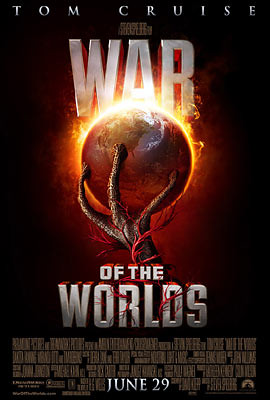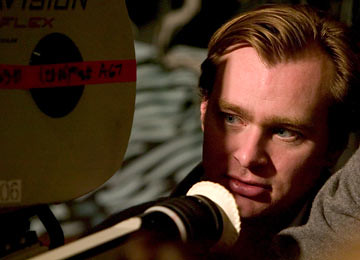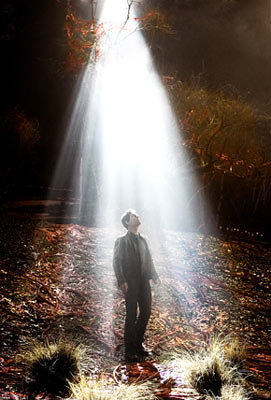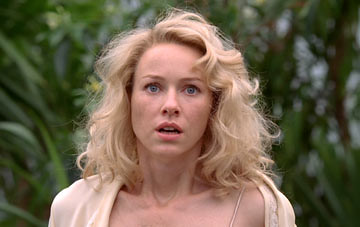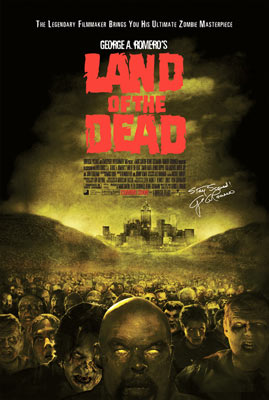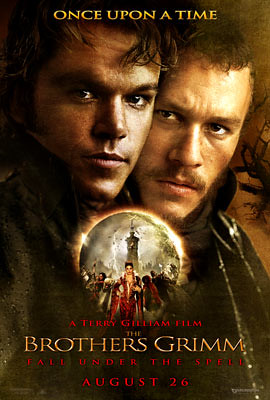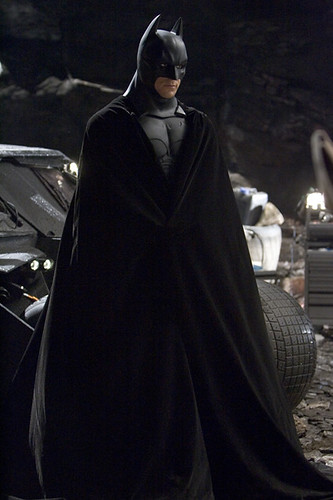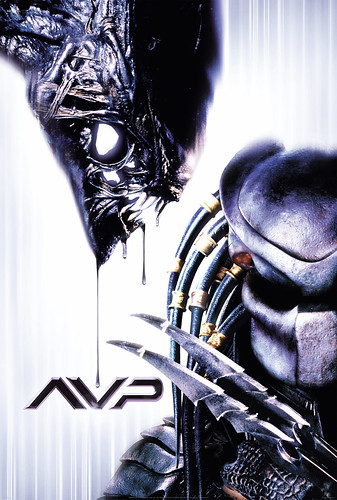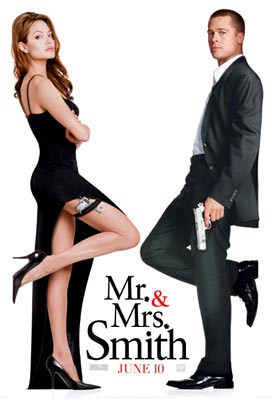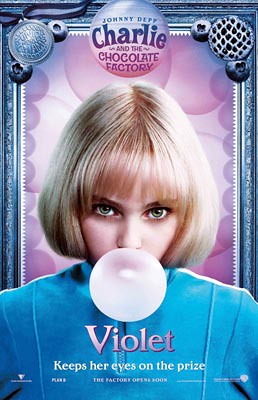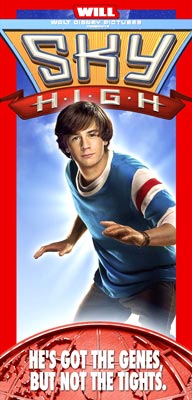Spielberg creates a near perfect “ride” in War of the Worlds
Last night I saw Steven Spielberg’s latest film War of the Worlds.
It is a pity that the film was released by Paramount studios, and not by Universal, because the film would have made for a perfect addition to their theme park attractions.
I’ll begin by saying this. While I was watching War of the Worlds, I was absolutely, positively enraptured. I was completely caught up in the intensity of the moments on screen, and constantly being wowed by the visuals unfolding before my eyes. I was familiar with the story and had a general idea about what was going to happen, but nevertheless I was on the edge of my seat.
It was an incredible movie going experience.
But after sitting through the credits, as I began to listen to my friends critique the movie’s every nerve, and compare it to previous works that Spielberg has made over the years, I found myself doing a little re-evaluating of my own. Was War of the Worlds as emotionally complex and thematically layered as some of Spielberg’s pervious works? Did the film meet its own potential? And if it was just pure summer popcorn distraction, is that ok?
The Story & Characters
I have to confess when the movie began, I was not really buying Tom Cruise, as your average blue collar worker, on the job moving freight on the docks of Newark New Jersey. Cruise, in his perfectly fitted Diesel jeans, fashionable leather jacket and handsomely stylish hair was bugging me. From a strict career standpoint, I have always thought that Cruise has made interesting choices, and given solidly good performances. No matter what the pundits might say when learning he has been cast in another unusual role (be it that of a vampire or a hitman) Cruise always seems to prove them wrong and show that he is up to task.
But for the first ten to fifteen minutes or so, when Cruise, as Ray Ferrier, was on the docks, and then paling it up with his working class, mixed ethnicity buds, I was not sold. Cruise was too good looking, too polished, too well dressed. He stuck out like a sore thumb between the mechanic, and the bilingual neighbor. I could almost catch a glimpse of his publicist standing off to the side of the camera on set, yelling at hair and make-up to make sure his hair had enough product, and his backside was shot at a flattering angle. {Also I didn’t really see how a guy like him and his x-wife (played by Miranda Otto), a woman of privileged Boston Brahmin origins ended up together in marriage and having two kids. A summer fling maybe, but several years together? I don’t think so.}
But then, as he usually does, Cruise redeemed himself. I thought his interaction with the kids was great, and they all had good chemistry together. Spielberg has always been a master at setting up family dynamics really well, and developing these relationships in small, little throw away moments.
I do however believe, that Cruises’ success with the role, had to do with the fact that after the first twenty minutes or so, his scenes were predominantly with just his two kids, and he didn’t have much one on one interaction with anyone else except for Tim Robbins’ character Ogilvy. The man can act, there’s no doubt about that, he knows how to convey emotion in a wide range of subtleties and dramatics. By the end of the movie I didn’t have many complaints, but I do think that the movie might have struck me more if Spielberg had cast someone who naturally felt more like an everyman.
Tom Cruise plays Ray Ferrier, a man who has somewhat shirked his duties as a father to his children, until the World is turned on his head, and he has no choice put to become the parent he’s never been. Robbie, played by Justin Chatwin, is Ray’s ornery teenage son, and Rachel, played by Dakota Fanning, is his precociously bright and emotionally perceptive ten year old daughter. Justin Chatwin did a fine job with his role, and I was actually surprised to learn he is in his early 20’s because he channeled a 15/16 year old so well. Also I would say this is one of my more favorite Dakota Fanning outings. I normally find her obnoxious and scary, but for the first time I noticed that she has grown into herself a bit, and her smart quips don’t seem as forced or creepy at age ten, as they did when she was seven.
It is clear at the beginning of the film that Ray neither knew how, nor particularly cared about learning how to care properly for his kids. He is casually dismissive about what his children might need or want, and seems eager to get back to flying solo. While the surface story of the film is about aliens attacking the earth and decimating everything in sight, the emotional stakes are about a man trying to redeem himself as a father.
There was an article in USA Today that was posted a couple days ago about Spielberg and the way he’s incorporated “family values” into his film making.
When asked about Close Encounters of a Third Kind, Spielberg was quoted as saying:
“I’ve grown up a lot. I wasn’t a dad when I was 27, 28 years old and made that movie. I’m a father now. It’s very easy to have somebody leave his family to get on a mother ship when you’re not a father yourself. ….I would never have made that film after having children.”
And War of the Worlds really is all about what being a father and parent is. Ray Ferrier must not only protect his children from the dangers of the external attacking forces, he must also shield them from the ugliness of humanity as it bares its teeth struggling for survival. In particular, Rachel, has a couple of amazing moments where she does not understand why people are behaving the way they are. I really liked the scene where the Ferrier family is in the minivan and they are approaching the ferry. The closer they get to the boat, the more difficult it becomes to push through the tremendous mob of people that is desperate to get into their car and away to safety.
Rachel does not understand why people would want to attack their car, nor why it is that her father can’t let a few folks in to give them a ride. The whole sequence where Ray has to pull out a gun, in front of his kids, and fight with the others around him really hit home with me. He doesn’t want his kids to see that he is capable of this violence, yet he must do anything he can to protect them. The idea of wanting to preserve a gentle image of oneself to one’s child is one I found to be both touching and intriguing.
While the theme of protecting innocence ran between Ray’s relationship with Rachel, his relationship with his son Robbie, was about recognizing that his child, was really no longer a child. When his family is put into sudden and catastrophic danger, Ray only desires to foster and protect his children. But he has been absent for so long that he doesn’t quite realize that Robbie has already grown up. As much as Ray needs Robbie to need him, he eventually comes to realize that his son has not only grown up to be a young man, but that he is a brave and capable young man. I thought the moment when Ray looks on at Robbie helping others onto the ferry was really neat.
While I think that Spielberg was trying to make a point about parents letting go of their children, his choice to end the film in the way he did can be debated. Ray is forced to let Robbie go during a military battle with the aliens, because if he does not, he will loose Rachel. At this moment Ray must concede that Robbie is more capable to take care of himself than Rachel is, and this is a very wrenching moment for him because he has to choose between his children. At the end of the movie, Robbie comes running out of his grandparent’s house in Boston, and shares a poignant moment with his father. Ray realizes he ultimately made the right choice in letting Robbie go. Robbie apologizes for running away, and Ray is overwhelmed, not only by the fact that Robbie is still alive, but also with a sense of pride at the fact that his son was capable and able to survive on his own. It is the same sort of pride that Ray got on the ferry when he got a glimpse of the man that Robbie was becoming, as he helped people on board.
But what if Robbie hadn’t come out of the grandparent’s house? What if he had died, or gone missing? In making this neatly sewn fable of the paternal journey, Spielberg chooses to go an incredibly optimistic route. The truth of the matter is, sometimes we let people go and they do not come back, sometimes fathers do just disappear into space, and sometimes you can’t save everyone that you love, no matter how much you might want to.
I cry at the end of Close Encounters every single time I see it. There is something so heart breaking, yet so moving about the fact that Roy Neary (Richard Dreyfuss) gets on that space ship. It is about the fact that there might be something bigger than the life that he has known or the people and family that he loved. That film is about having to make the decision to choose one’s own personal journey above anyone elses’, even if the consequences are painful. Now maybe that’s a selfish and egocentric way of looking at things, and maybe I just feel this way because I’m not a parent, but nevertheless it strikes me as being very real.
I recognize and appreciate the paternal themes woven through War of the Worlds, but I think they could have been given a little more depth of flavor, if there had been more bitterness in the recipe. Things do happen a bit too easily for Ray.
One of the most unsettling moments of the film for me was when Ray comes to the realization that he is going to have to kill Ogilvy in that basement if he is to keep himself and his daughter alive. He must become this murderous savage person, no better than one of the aliens while she is but a few meters away. I loved the fact that you did not see Ray commit the act and experienced the whole thing from Rachel’s perspective. And yet, there was no further fall out of this moment, no dialogue, no fear or questioning from Rachel after it happened. It was just accepted, and then after that crushing moment, they went back to business as usual, “time to run from aliens”. I think the film could have had some higher emotional stakes if I had believed Ray was under threat of actually loosing something. Sure, Rachel lost her innocence, and Robbie completed the loss of his boyhood, but what did Ray loose? Maybe he appeared a little meaner and scarier in the eyes of his kids, but he also gained more of their admiration, trust and love. Since he didn’t really loose Robbie, I think I would have liked to see him walk off into the sunset to reprise his life as a loner, once it was clear the world was not coming to an end.
Aliens, Sights & Sounds
From a visceral perspective, I was completely blown away by this movie. From the instant the lightning started to strike out of the swirling grey clouded skies, I found myself completely riveted by the images on screen. That first major action sequence where the tripod breaks out of the pavement was unbelievable. I thought the design of the tripods were tremendous. They felt like a perfect mixture of antiquated throwback sci-fi designs from the 30’s and 40’s, with a modern twist; they were reminiscent while being original. I thought the images of the clothing of the incinerated people blowing through the air after the first attack, were both bone-chilling and striking. Spielberg’s camera choices during this intense set-piece were terrific, and I enjoyed watching him zoom around from angle to reflective perspective, including a neat shot of watching the tripod move through the screen of a handheld video camera that had been abandoned.
I thought all the sound design for the aliens and their contraptions was perfectly fitting. It wasn’t quite like anything you’ve heard before, though the groans had notes of familiarity to them. I like the fact that these monstrous metal contraptions made semi-organic noises.
When Ray and the kids are on the ferry, and that giant tripod comes out of the water, I was simply beside myself. I was taken completely by surprise, and the appearance and sounds of the alien contraption were terrifying: it was like a giant squid rising out of the depths staring at everyone with its glowing mechanical eye. The shots of the people swimming underwater were fantastic and horrible at the same time. The surreal shade of aquamarine and the light flooding through the water was ethereal, but the images of the tentacles reaching for victims was gruesome.
I thought the giant tentacle and eye that poked through the basement when Ray and Rachel were hiding with Ogilvy, was terrifying. I thought the simple metal pipe, with the computerized eye, and the glowing light of its electronics seeping through its seams created a great image.
As for the aliens themselves, I hadn’t been expecting to get as good a look at them as we did. The bodies of the aliens were fairly anthropomorphic, though they were webbed and slimy and had spindly spidery limbs. I thought their heads were a little bit too derivative of the elongated black skulls of the queens in the Alien films. But I think it was their eyes that really got me, large flat reflective discs, cold and without life, it gave the aliens a insect like quality that generated goose bumps. I guess for how original I thought the tripods looked, I thought the aliens could have been a little more unique.
I thought a lot of the concepts behind the aliens were both fascinating and eerie. The idea that this civilization had buried these tripods years and years before man was excavating and building upon the planet was very intriguing. I liked the idea that the invasion had been in the making for years and years, and that it was all part of a master plan, a portion of which incidentally involved exterminating humans. Also the methodology by which the aliens were spreading their life on the planet with their red weeds was horrifying. To watch the aliens eviscerating humans, spraying their blood everywhere, followed by the plague of bloody alien veins that flourished on every surface it touched, was captivating and blood curdling all at the same time.
Expectations
I’ve had a really difficult time evaluating The War of the Worlds. It’s no secret that I am an enormous Spielberg fan. I grew up watching many of his films, and consider many of them to be some of the best films around. I think in the past, Spielberg has done so well with science fiction, because he has been able to use this larger genre framework to fit in his own ideals about family, individuality, fear, life and so forth. I never really think of any of his big blockbusters, as just being “fun, enjoyable” films. For me there is always a deeper emotional core, a sense that I have witnessed a tremendous journey. I think the closest that Spielberg has ever gotten to pure unadulterated escapism are the Indiana Jones films. Now I think those movies are unbelievable, but as a character, Indy is more of a constant. He is a bastion of justice and good that shoves off the forces of evil and corruption. Sure there are some socio-political themes running through the first and second, but really it’s only in the third film, The Last Crusade, where Indy has any real emotional stakes, which occurs because his father becomes involved. You were always rooting for Indy and his sidekicks the whole way, but you always knew he was going to make it, and even if the cute girl died, you knew he’d get a new one. The Indy movies are just pure action adventure fun at their best.
I think the difference with War of the Worlds, is that since it is much darker than the Indy films, and is dealt with in much more dramatic tones, people naturally expect deeper emotional storylines and involvement. To me, War of the Worlds was really like the perfect ride at a Universal Studios Theme Park. I got caught up in the apprehension and the fear of the moment. I was taken by surprise and wowed by what I was seeing. I felt exhilarated at the sheer sensation of being transported somewhere else. I was scared, and worried and shocked, and enjoyed every moment of each feeling. But if I am honest with myself, I also realize that after I walked out of the theatre, and the after glow of the fun wears off, there is not much else left. I certainly have the feeling that I was witness to a great spectacle, but I do not feel as emotionally moved as I have after many other Spielberg movies.
And I find myself once again asking myself the question, does it matter? It is ok that Spielberg just made a really entertaining summer movie that was maybe a little too simple and singular in its thematic focus? Certainly his skill shows through, and his natural ability for film making and story telling make his popcorn endeavor better than many “serious” films by other directors. I find myself wanting to lavish praise upon praise on this film, because I had such a good time while watching it, and because I love Spielberg so much. But there is a nagging sensation inside me that realizes it could have been more than what it was. One part of me is aware it lacked the complexity of many of his other movies and the other part simply does not care.
